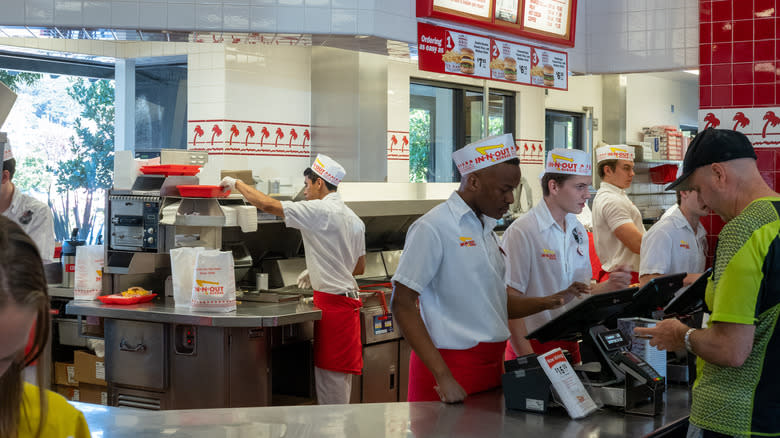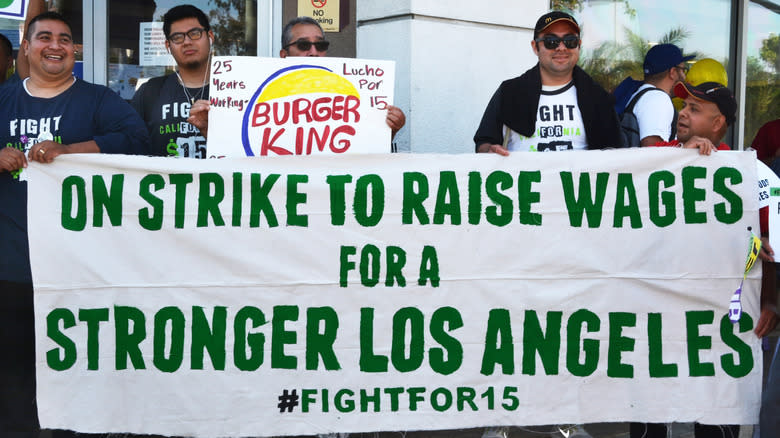California Raises Minimum Wage For Fast Food Workers To $20 Per Hour

- Oops!Something went wrong.Please try again later.
Fast food workers in California scored a major victory this week, as Governor Gavin Newsom signed into law a new bill that increases the fast food minimum wage to $20 per hour. The landmark bill raises the wages of fast food workers above the state's across-the-board minimum wage of $15.50 an hour, and comes after years of intense activism and pressure from workers and unions, which included 450 strikes since 2020. Addressing cheering fast food workers at an event in Los Angeles to celebrate the signing, Governor Newsom gave a simple and direct quote saying: "This is a big deal."
The law raising the fast food minimum wage will take effect on April 1, 2024. The $20 wage represents a big jump for workers, as California fast food employees currently make an average of $16.60 an hour, which is below the poverty line for a family of four. In addition to the increased wages, the bill also creates a fast food council, which is made up of representatives from both the fast food industry and labor. The council will have the power to increase the minimum wage in the future, as well as set standards for working conditions, which is similar to the "sectoral bargaining" for entire industries that is more common in Europe.
Read more: 19 Popular Pizza Chains, Ranked From Worst To Best
Fast Food Workers' Victory In California Comes After A Years-Long Battle

While the increased minimum wage and new fast food council are big wins for labor activists and fast food workers, the current bill is actually a scaled down version of a contentious law, AB 257, that was signed last year. That version raised the wage to $22 an hour, and was fiercely contested by lobbyists, who succeeded in delaying the fast food law and launching a potential statewide referendum to repeal it. In a rare moment of cooperation and compromise, union leaders from the Service Employees International Union (SEIU), were able to convince industry leaders to drop their referendum, which would have meant a costly and difficult battle for both sides, and instead sit down and negotiate a compromise bill. Those discussions eventually led to the new bill that was passed this week.
The key point of contention that was dropped in order for the compromise bill to pass was language that could have held restaurant parent companies liable for violations their franchisees were responsible for. The cooperation between business owners and laborers comes on the heels of Proposition 22, when rideshare and delivery companies spent over $200 million to pass a referendum that exempted them from a law protecting independent contractors, which showed just how expensive these intiatives can be. This kind of negotiation has previously been unprecedented in U.S. labor relations, and could point to a new path forward in the battle over restaurant working conditions.
Read the original article on Tasting Table.

